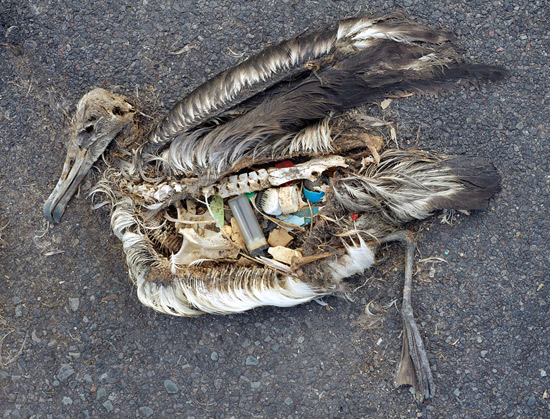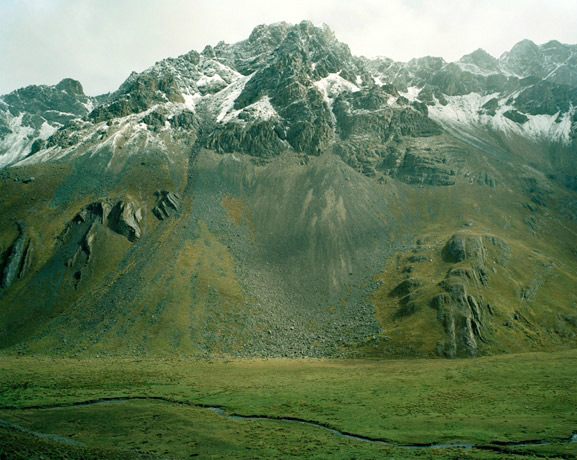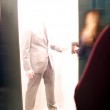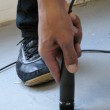Exit Art tackled the notion that “global environmental struggles are creating an aesthetic” by mounting the photographic exhibit Ecoaesthetic: The Tragedy of Beauty on the main floor and hosting the SEA Poetry Series No. 4 in its cozy subterranean digital theatre on July 27, 2010.
The photographic highlights pictured here include Chris Jordan’s Midway Project, 2009, which documents the devastating impact plastic pollution has had on Midway Atoll albatross chicks in collage-like compositions, and Susannah Sayler’s Glacial, Icecap and Permafrost Melting XLVII: Cordillera Blanca, Peru, 2008 documenting a vanishing glacier, juxtaposing the limitations of attempting to capture geological time pitted against human time, capturing stasis as a positive state.
The spoken word portion of the SEA (Social Environmental Aesthetics) program convened in Exit Underground, a 3000 square foot, multi-media performance, film and exhibition venue, organized by EJ McAdams, poet and Associate Director of Philanthropy at the Nature Conservatory in New York. McAdams described SEA’s charge as promoting dialogue about perennial environmental concerns and creating a space for creatives as diverse as dancers, gardeners, and visual artists, while simultaneously widening the audience for poetry. The solo poem “Passive Voice: Forcing Amaryllis,” written and read by James Sherry, was not only “not nature poetry,” but a bewildering introduction to flarf poetry.
The jaunty Sherry best served the cause of climate change and poetry when discussing his essay by the same name. He described the difficulty scientists have convincing the public about environmental issues, which, when coupled with getting them to “pay attention to the epistemology of the arts” showcases the challenge that culture faces when communicating what scientists have learned.
He later joined Ed Morris and Susannah Saylar of the Canary Project, a body of work intent on helping the public better understand human-induced climate change, in a panel discussion and Q & A.




 RSS
RSS

wonderful E. J> safe travel now.
August 4, 2010 @ 4:02 am